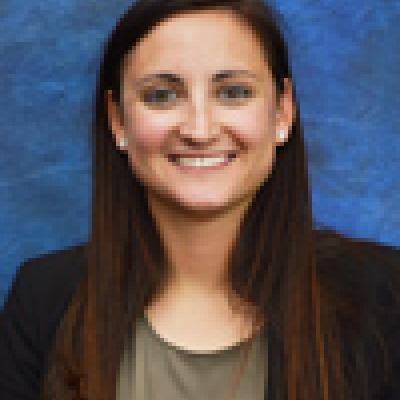
In 2017, Dr. Karanian received her Ph.D. in cognitive neuroscience from Boston College. While at Boston College, she also completed an Apprenticeship in College Teaching through the Center of Teaching Excellence. Dr. Karanian completed her undergraduate work at Fairfield University in 2012.
Dr. Karanian joined John Jay in Fall 2018. She will teach Cognitive Psychology and begin the Memory and Cognitive Neuroscience Lab @ John Jay. Prior to John Jay, Dr. Karanian gained experience as a Visiting Assistant Professor at Wesleyan University and Postdoctoral Research Scholar at Tufts University.
Current courses: Cognitive psychology
Selected publications:
- Karanian, J. M., & Slotnick, S. D. (in press). Confident false memories for spatial location are mediated by V1. Cognitive Neuroscience.
- Jeye, B. J., MacEvoy, S. P., Karanian, J. M., & Slotnick, S. D. (2018). Distinct regions of the hippocampus are associated with memory for different spatial locations. Brain Research, 1687, 41-49.
- Karanian, J. M., & Slotnick, S. D. (2017). False memories for shape activate the lateral occipital complex. Learning & Memory, 24, 552-556.
- Karanian, J. M., & Slotnick, S. D. (2017). False memory for context and true memory for context similarly activate the parahippocampal cortex. Cortex, 91, 79-88.
- Jeye, B. J., Karanian, J. M., & Slotnick, S. D. (2017). The anterior prefrontal cortex and the hippocampus are negatively correlated during false memories. Brain Sciences, 7, 1-9.
- Jeye, B. J., Karanian, J. M., & Slotnick, S. D. (2016). Spatial memory activity distributions indicate the hippocampus operates in a continuous manner. Brain Sciences, 6, 1-12.
- Karanian, J. M., & Slotnick, S. D. (2015). Memory for shape reactivates the lateral occipital complex. Brain Research, 1603, 124-132.
- Karanian, J. M., & Slotnick, S. D. (2014). True memory and false memory for context differentially activate the parahippocampal cortex. Cognitive Neuroscience, 5, 186-192.
- Karanian, J. M., & Slotnick, S. D. (2014). The cortical basis of true memory and false memory for motion. Neuropsychologia, 54, 53-58.
Dr. Karanian investigates the manner in which true and false memories are constructed. Her laboratory employs a variety of methods, including functional magnetic resonance imaging (fMRI), electroencephalography (EEG), transcranial magnetic stimulation (TMS), behavioral paradigms, and physiological measures. Ultimately, Dr. Karanian strives to apply our theoretical understanding of memory construction to both protect the integrity and improve the quality of human memory in real-world contexts, including eyewitness memory. Dr. Karanian's research has been funded by the National Science Foundation, American Psychological Association, and Association for Psychological Science.